The Eatonville Roadhouse had recently been in the news because the owner wanted to demolish the building, and to do that he needed local council to remove it from the county's historic registry. Now I'm always up for visiting any building that's going to go away, but in addition, this was the last vestige of a Southwestern Ontario hamlet and also another tavern/roadhouse disappearing. Although, through all of those reasons to pay a visit, the biggest reason was the fascinating history. |
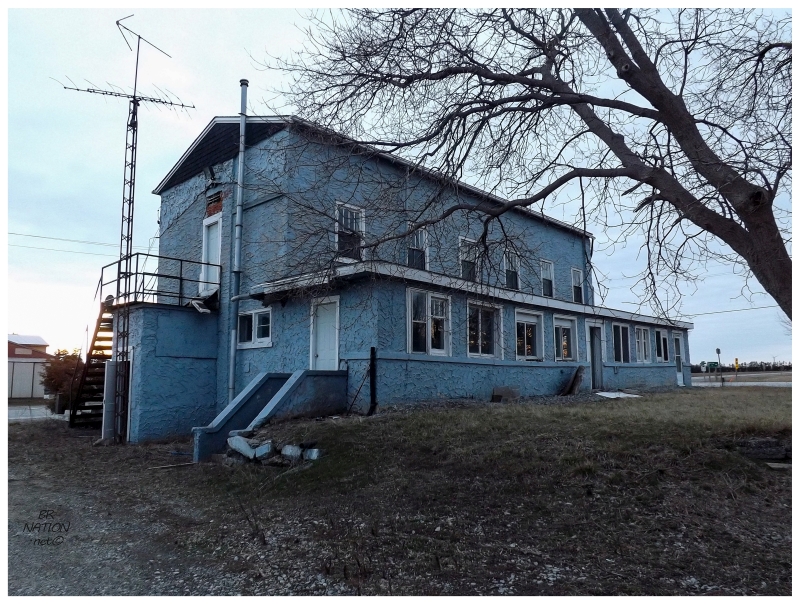
Located on Highway 3 just past Blenheim, I hadn't travelled past the Eatonville Roadhouse very often because I've never been to Rondeau and Blenheim usually distracts me with their skatepark and/or street spots (RIP Blenheim 7-11 spot). After a lengthy drive, even if the roadhouse was unfamiliar it was still a handsome building for the three of us to roll up on. This still felt like the more familiar part of Highway 3 down by Wheatley or Dealtown. |
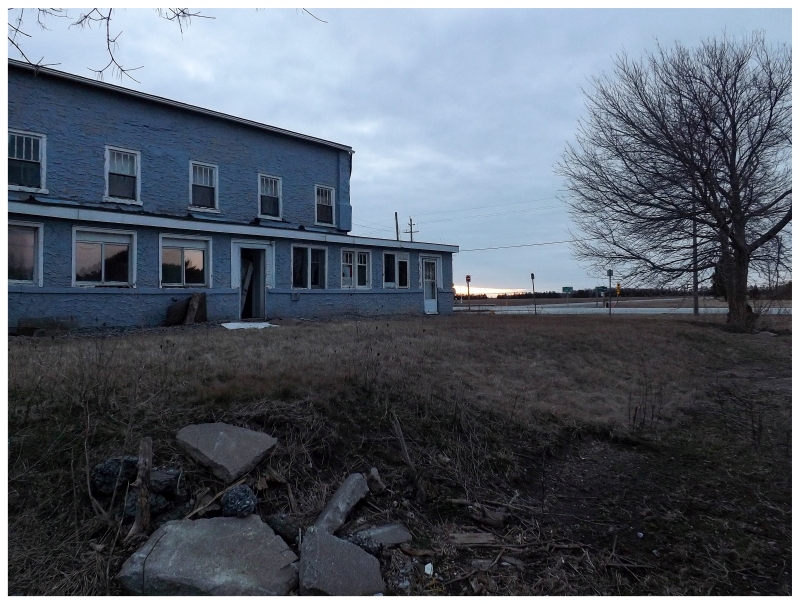
J.A. "Pop" Eaton was a hotelier in Orillia with ties to Chicago, who was looking to build accommodations to serve those from Detroit & Chicago that were headed up to the Buffalo/Niagara Falls region. Highway 3 was a more popular thoroughfare back then and would have been the route that people travelled. At this junction of Kent Bridge Road and Highway 3 he had the choice of two lots, the one he chose in Howard Township and one across the street in Harwich Township. Eaton chose the cheaper of the two lots and constructed his hotel, two-story garage and hot dog stand by 1926. The historic application for this building says that this might've been the first drive-thru hot dog stand in Canada. |
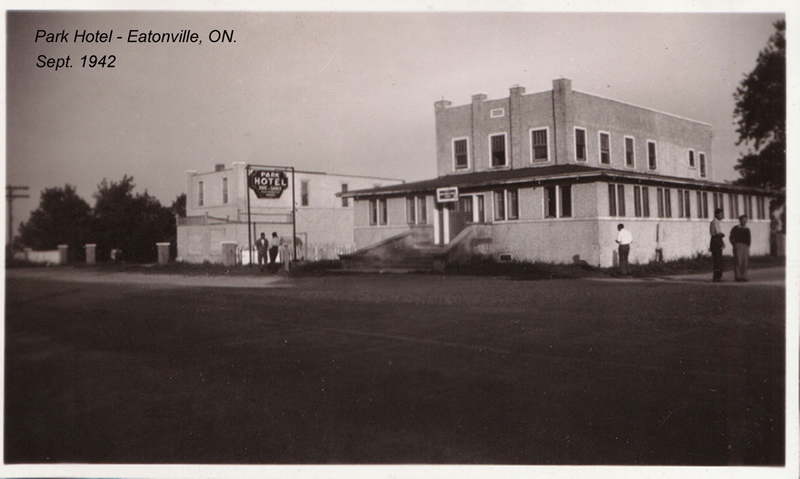
From The Farmhouse Chronicles.
Pop Eaton had some success here, especially as Rondeau grew in popularity when it became more common for the general population to own cars. On the other hand, the road commission told him that his Rondeau Road-facing wall, with its 12-inch glass globes, was too close to the road. He also happened to build in a dry township. Howard Township (where Eaton's cheaper lot was located) would soon choose to be "dry", while across the street Harwich Township was "wet" - an obvious problem for a hotel with a dining room. In the end, things didn't work out for Pop Eaton's Roadhouse and he came to owe money to a Howard Pyne of Ridgetown. Eaton transferred his roadhouse over to Pyne to settle these debts and Pyne would rename the place the Sunset Hotel, and then the Park Hotel. |
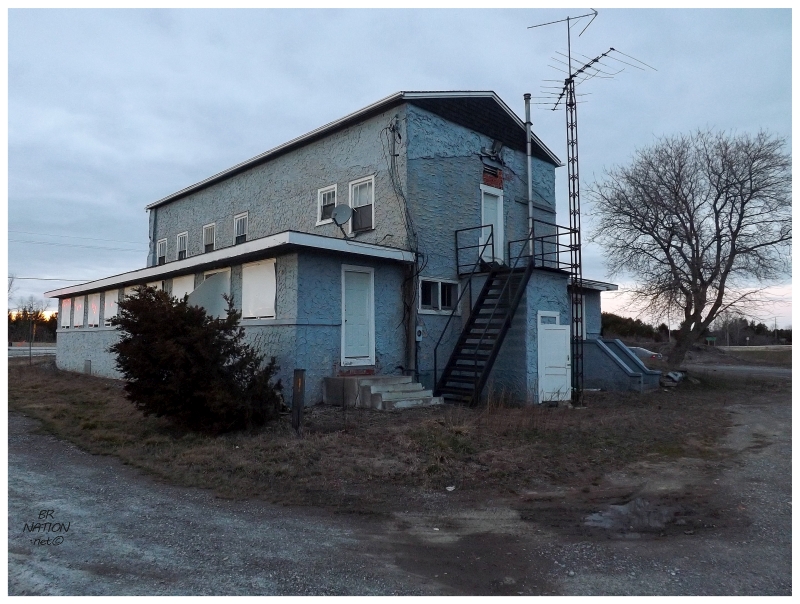
Pyne decided he would get around Howard being a dry township by getting into bootlegging. This ran well enough for a while, but soon the hotels in Blenheim and Ridgetown complained and had police sent over because Pyne was cutting into their profits. Pyne then campaigned for the township to go wet, but this was opposed by church groups, as well as local farmers who themselves were making money bootlegging. Come 1942, Howard Pyne no longer had to worry about bootlegging after he entered into an agreement with the federal government to rent out his hotel as housing for Japanese men during World War II. |
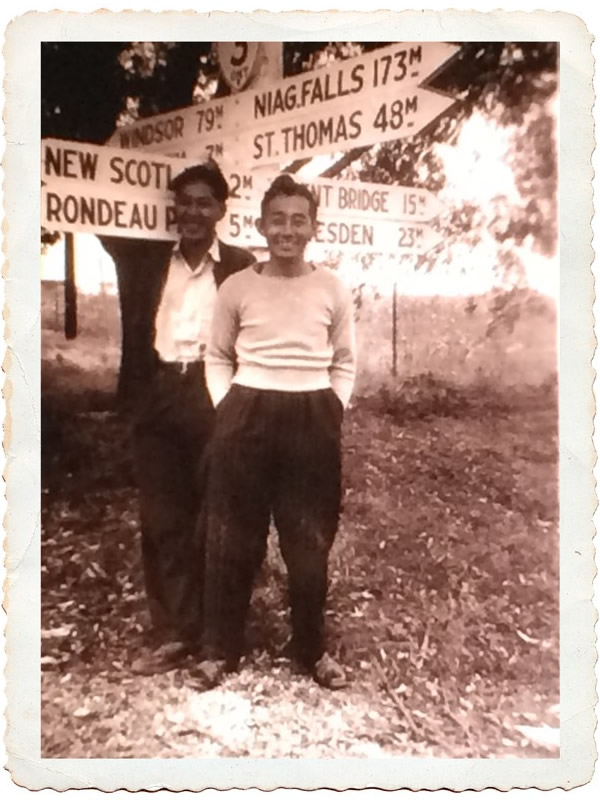
From CityLab, Dec 9, 2016. Via Jerry Hind.
Shortly after President Roosevelt's executive order to gather 120,000 Japanese Americans and put them into internment camps, a similar order was enacted in Canada. 22,000 Japanese Canadians were uprooted from British Columbia as they were no longer allowed to live within 160km (100mi) of the Pacific Ocean for fear of them communicating with offshore submarines. The Japanese were sent from British Columbia to Ontario; mostly to Northern Ontario where the men worked in road crews to improve the highway network up there. After some time on these road crews they could transfer down to Southern Ontario, to places like the Eatonville Roadhouse that housed 55 Japanese men. (The wives and children lived at a camp on the Dresden Fairgrounds.) |
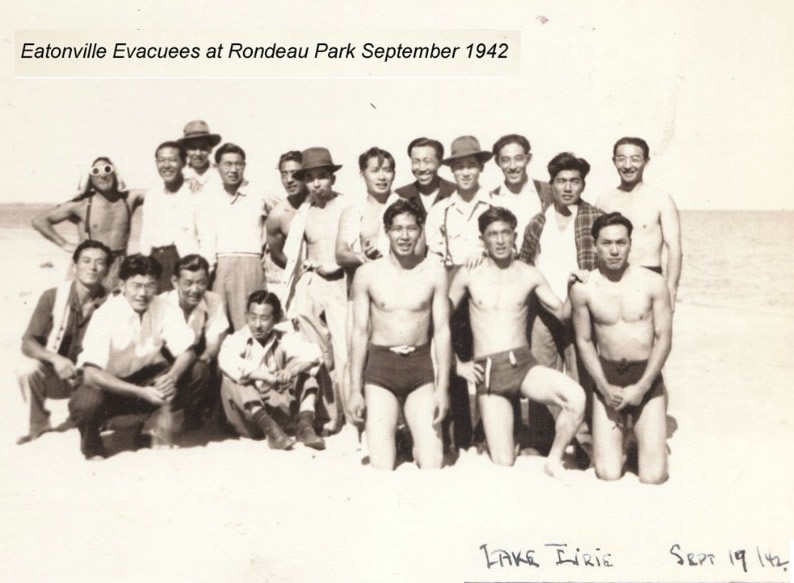
From The National Post, December 13th, 2016
The men staying in Eatonville were watched by 1 RCMP guard, a WWI veteran in possession of a rusty revolver who slept most of the day. Some of the prisoners joked that the revolver probably didn't even work. While at Eatonville the men picked apples and harvested wheat, but mostly they were known for their work at Rondeau Provincial Park where they cleared brush and built trails. During their downtime, they formed a baseball team that took on local teams at the schoolyard in New Scotland. (New Scotland is halfway between Eatonville and Rondeau.) The men also built a Japanese bath in the old car garage, involving a tub elevated over a fire pit. They would come back from their days at Rondeau and Mr. Pyne would already have the fire going, allowing the men to take turns having soaks before then going outside and rolling around in the snow. Mr. Pyne's wife would shut her blinds to avoid seeing the naked, frolicking men. |
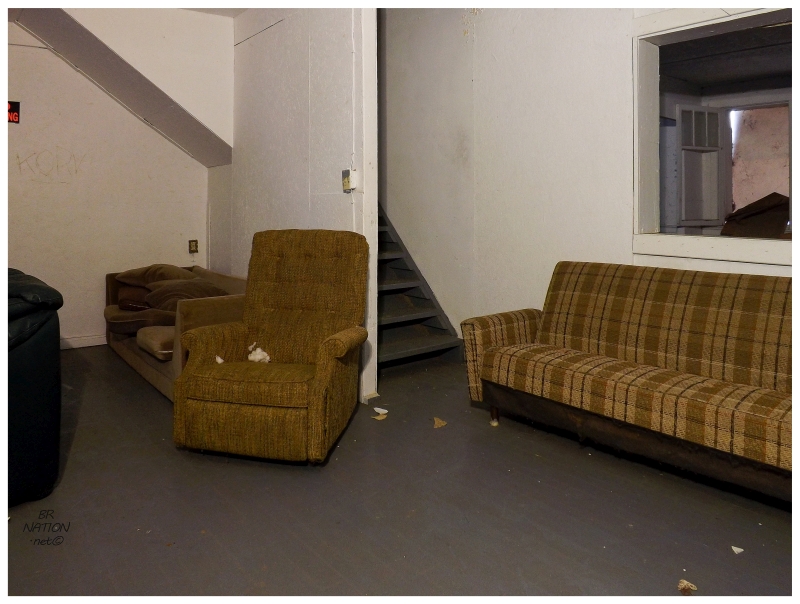
Even though the war ended in 1945, the men weren't allowed to return to the West Coast until 1949. By then many had lost their homes and property, as well as any ties to friends. Without a reason to return, many decided to stay in Ontario instead and started a new life in Hamilton or Toronto. There aren't any known examples of anyone sticking around Chatham/Kent County. |
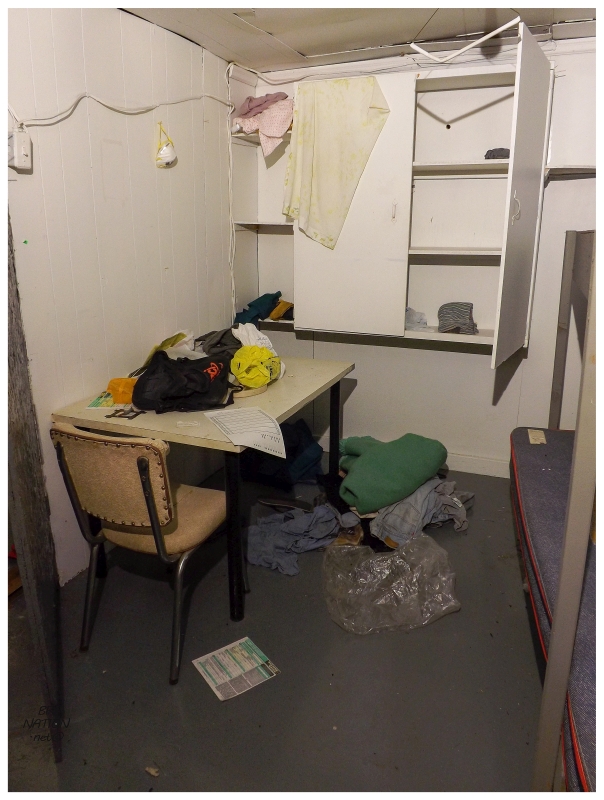
After the Japanese men left, Pyne would convert the hot dog stand and garage into a chicken coop that held 2000 birds. (Some sources state that Pyne built a standalone hen house instead of converting the standing buildings.) He would move his family into the hotel & convert in into their home in 1951. He then stayed there until health problems forced him to move to Windsor in 1962 (his wife passed away in Eatonville in 1959). The hot dog stand and garage would be torn down sometime afterwards and the roadhouse sold to a local farming family. The farming family used the old hotel to house migrant workers, the most recent being from the Caribbean who stayed in Eatonville to pick tomatoes. |
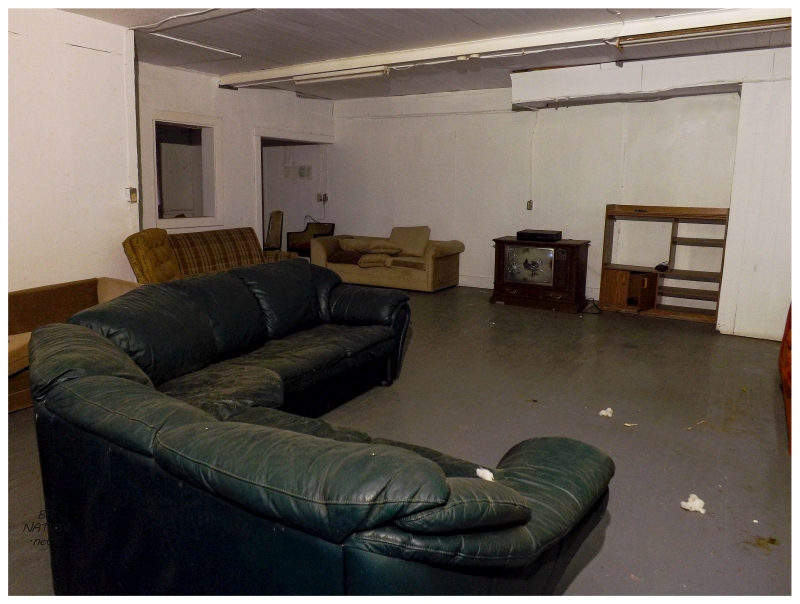
We walked down into the building and thankfully Donnie had been here before, as he guided me away from stepping on a dead and bloated raccoon he knew was below. The room we entered seemed like it could have been the dance hall/restaurant in the past, with a small kitchen off to our right. |
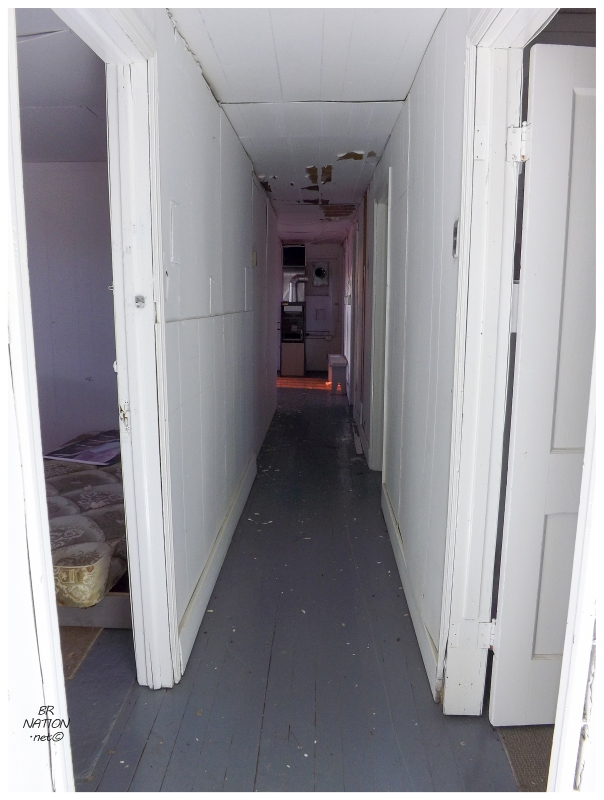
Instead of the downstairs living room with the mishmash of furniture, upstairs was more interesting because it was easy enough to dream of this space back in the roadhouse/hotel days. It was also interesting because it's not like I've been in the upstairs hotel areas of the taverns and roadhouses that still exist or were abandoned for some time. I've never been above Little Memphis or the King George or Abar's. It almost seems weird to me that I haven't been in a building like this, but I can't think of another one off the top of my head. |
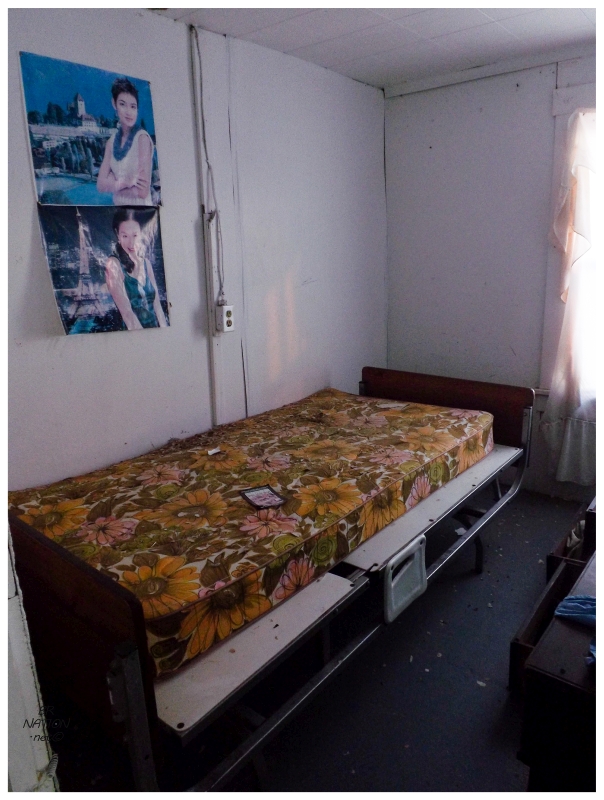
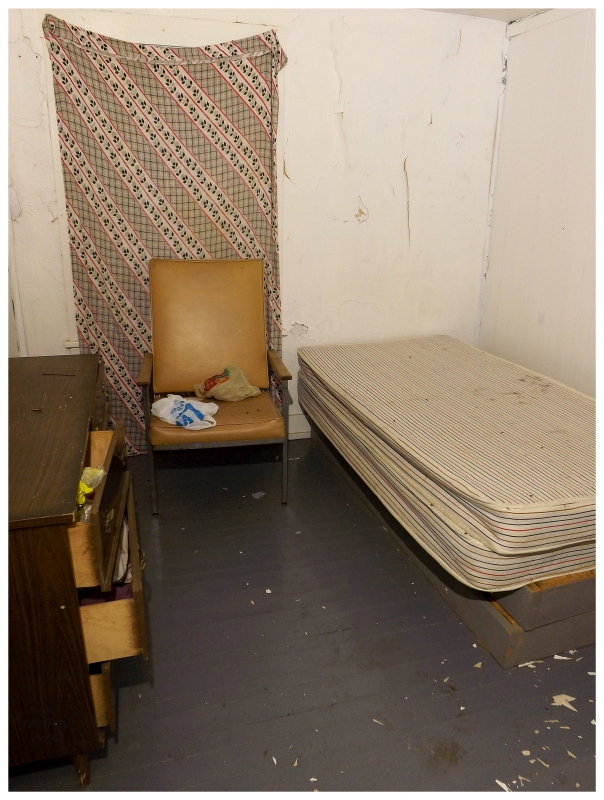
Growing up in Southwestern Ontario, all three of us were accustomed to seeing migrant workers helping out with the crops in the southern parts of Essex and Kent County. I never gave much thought to how these workers live and rest their heads at night. I've been in an old house that slept some seasonal workers outside Kingsville before, but the Eatonville Roadhouse was much more separated and lived in. Looking around, it felt more like you were checking out each person's personal quarters. |
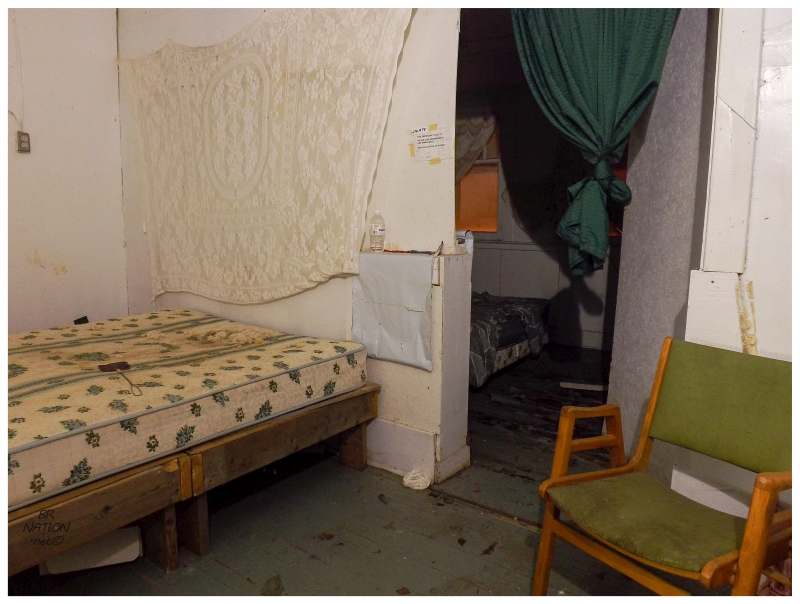
I couldn't help but think about how I'd end up rapping someone upside the head in these tight spaces. Then again, I guess fighting might be frowned upon when applying for another work permit the next year. |
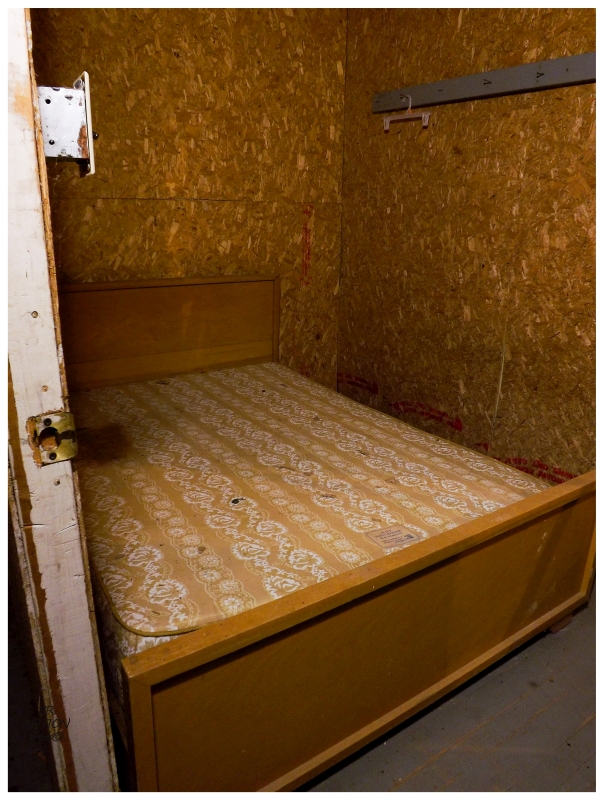
The farming family abandoned this place because they wanted to house their employees in better accommodations. After that, they didn't have much use for the building anymore. |
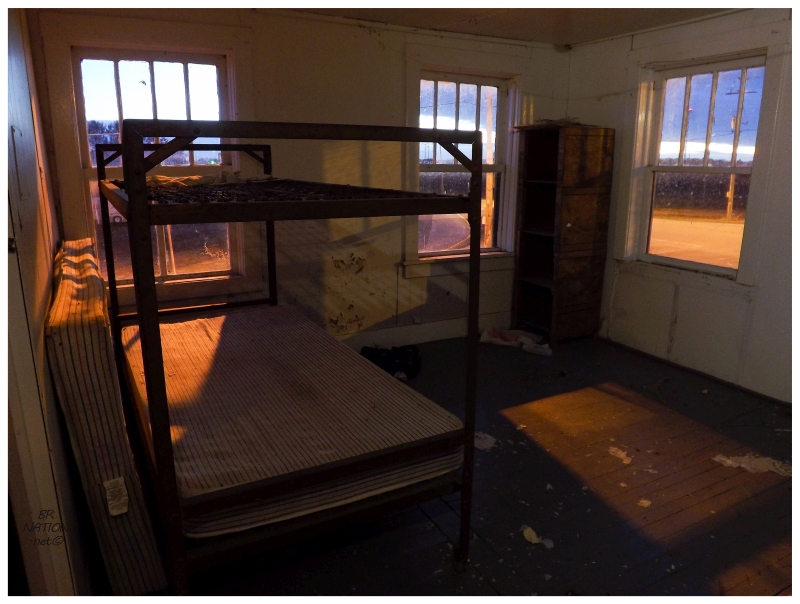
The Eatonville Roadhouse was successfully removed from the historic registry and the owner is free to demolish it whenever he wants. It still stands because of a thoughtful decision though, where the family has held off on immediate demolition in the wake of the Japanese internment history that emerged. (This history wasn't common knowledge until local historian Jerry Hind starting looking through some old journals that his wife purchased.) |
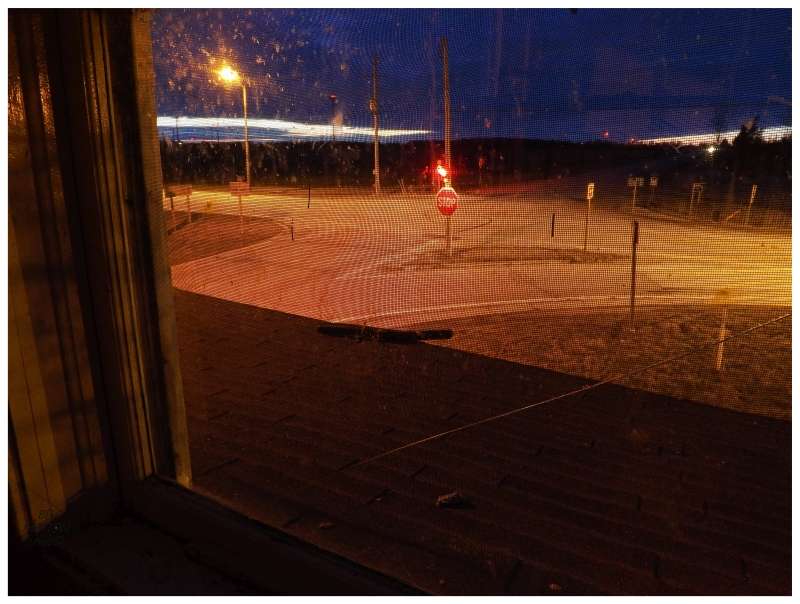
The National Association of Japanese Canadians came down and looked at the building - noting that this is the last standing building in Ontario from the internment period - but with an acquisition estimate of $30k to $40k, with an added $400k to $700k repair estimate, acquiring the building is outside the financial scope of the NAJC. Local historians and citizens hope that something can be done with the Eatonville Roadhouse, but the farming family is quoted as saying no one has approached them with a good deal in the year that they've waited. In the meantime, the building has become a maintenance and security headache & the family is unsure of how much longer they will wait before tearing it down. As far as I know, it still stands as of this writing (September 2017). |